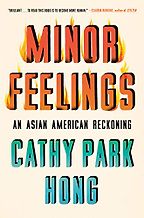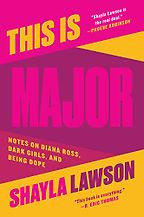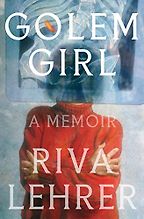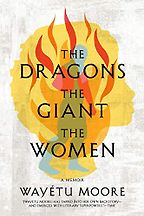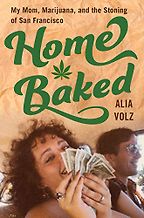So we’re here to discuss the finalists for the National Book Critics Circle (NBCC) award for autobiography. 2021 marks the third year running that we’ve featured this shortlist, which includes memoir and—this year—personal essays. Let’s start by looking at what unites the five books on this list: what are you looking for when you search for the best autobiographies?
A few things. We’re interested in ways that memoir blends into other genres—cultural criticism, biography, and straight nonfiction. This year, the finalists include several books that are genre-benders, and one that includes visual art and painting. Along with that, we’re interested in formal innovation, stylistic choices that add texture and range to traditional narrative storytelling. The creative part of creative nonfiction, perhaps.
In this year of Black Lives Matter and increased awareness of inequity in publishing, we’re definitely interested in centring other voices. Not only BIPOC voices; but all voices outside the privileged mainstream. For example, one of our authors is physically disabled, that’s part of what her book is about. This relates to our concern for relevance: is there something happening in this memoir that’s important for people to know about?
Get the weekly Five Books newsletter
I’ve shared with my committee my feeling that a memoir should entertain as well as reveal and confess, should be about the reader as well as the author. In this genre, it can sometimes seem that there’s no concern for the reader—the author wrote this book because they had to get something off their chest. I like to see the opposite—that the reader was foremost in the mind of the writer, even when the topic is personal tragedy.
This is the great challenge of writing memoir, right? You need to be specific, personal. But you need also for your story to appeal to a broad audience—not just the people who know you. To tap into something more universal. What makes a story transcend the personal in that way?
Any one of the elements I just mentioned can do that. The book might relate to a group of people or cultural issue that is of concern to others. It might report an experience that is of historic importance, or expand the conversation in some particular area of political concern.
Many autobiographies are about being ill or taking care of someone who’s ill. People really need support when they’re going through those experiences. There’s a connection and warmth that comes from reading about other people enduring what you’re going through, whether it’s having cancer, or living through a war, or dealing with all types of misfortune. There’s so much shared in autobiography that is very rarely said in the conversations we have with each other.
Absolutely. People find themselves in the stories of others. One thing I want to pick up on is that this seems to be the year of the essay collection; two have made the shortlist this year.
Part of this is what we were talking about with Black Lives Matter and the move to centre voices that haven’t been heard. Often those authors have something to say that is both a personal story and a meditation on cultural or socio-political matters. Those concerns lend themselves to the essay form.
Personal essays sometimes fall through the cracks, in terms of awards, because they can embrace more than one genre. They can be criticism, they can be nonfiction, they can be autobiography, they can emphasise lyricism and language, like poetry. So this year, the committee was particularly interested in making sure that we scooped up those that might fall between stools.
Well, let’s talk about the first book that made the 2021 memoir shortlist. This is Cathy Park Hong’s Minor Feelings: An Asian American Reckoning. Cathy Park Hong is primarily a poet. This is her first essay collection.
This is a great example of what I was just talking about, because it was also on the longlist for criticism. Although it has happened before, that a book has ended up on two lists—Claudia Rankine’s Citizen was a finalist for poetry and for criticism.
There was great enthusiasm for Hong’s book on my committee. It has a real freshness to it. She talks about being Asian American in a way we haven’t quite heard before. She digs into the personal to get to her political points, and that keeps it really lively. The opening of the book tells about trying to make an appointment with a therapist who is Asian, and there’s only one Asian name in her insurance company’s database. She sees this woman once, and thinks it’s gone great, she’s going to have a great experience working with this therapist. Then the woman refuses to take her on as a patient. Cathy gets, like, obsessed with the woman, is practically stalking her. And this experience seems to be a metaphor for her whole experience of herself in the world. She can’t ever be recognised or listened to—even the Asian American therapist doesn’t want to hear her problems! It’s a charming and unexpected way into the topic.
The title is interesting. She defines minor feelings as being emotions that are “negative, dysphoric, and therefore untelegenic, built from the sediments of everyday racial experience and the irritant of having one’s perception of reality constantly questioned or dismissed.” A sense of dissonance with the culture around you.
She writes about how Richard Pryor was a really important influence on her, because it was the first time she saw somebody really tell it like it is on race, and not be hampered by ideas of what you can and cannot say. She was so excited about Richard Pryor that she transcribed all his stand-up routines, and even tried stand-up herself, because she felt poetry was too limited.
‘Minor feelings’ is Hong’s term for the whole constellation of alienated and unhappy emotions she experiences as a cultural outlier; she’s springboarding off the idea of ‘ugly feelings,’ written about by Sianne Ngai. For example, Hong writes about the complexity of her relationships with other gifted Asian American girls she was friends with in college. She is so honest and clear, and not afraid to be self-deprecating. There’s plenty of autobiography in the mix here, so I was really glad it made it to our final five.
Next up is our second essay collection, also by a poet: Shayla Lawson. This is Major: On Diana Ross, Dark Girls and Being Dope. Could you tell us about it?
This is a really edgy book. Lawson says things that may get on people’s nerves… and she really doesn’t care. She gets into the whole woke scenario in a really interesting way, both in real life and on social media, which is as you know a big vehicle for wokeness and social justice warrior-ing.
I love the beginning of the book. She talks about how there was no American Girl Doll that was black, but she and her sister were obsessed with their little white, prairie girl. By the time they finally came out with a black American Girl Doll it was quite an anticlimax. She also writes about working in an office where she’s ‘the other black girl’. As you can tell from the title, she’s very in your face. And we wanted to honour that bravery and clarity.
“We figured out that the personal was political in the 1970s. Fifty years later, it’s time to let this genre absorb the impact of that insight”
We didn’t necessarily want to put out a list of books that everyone has already heard a lot about, have won other prizes, etc. We felt that This Is Major could easily be one that had slipped under the radar, so it’s exciting to lift it up. Like I say: it’s edgy, it’s funny, it’s badass.
That’s great. What are the strengths of the essay collection, more generally? Why does it make most sense for these two books to take this form, as opposed to single, extended narratives?
Because they’re just as interested in exploring issues as they are in telling a story. They need to not be limited by the demands of chronological storytelling. When you start Shayla Lawson’s book with the American Girl Doll essay, you could be reading the beginning of a regular narrative memoir, starting in her childhood. While it does jump around through her autobiography, many of the pieces are topical, as in ‘Black Lives Matter, Yard Signs Matter,’ and ‘Diana Ross Is Major.’ But as with Hong, there’s always autobiography in the mix.
And this is why these books used to fall through the cracks. People would say: ‘this isn’t autobiography, it’s cultural commentary.’ But we figured out that the personal was political in the 1970s. Fifty years later, it’s time to let this genre absorb the impact of that insight.
Totally. Well, book number three on your best of autobiography list is Riva Lehrer’s Golem Girl. This memoir won the 2021 Barbellion Prize, for writers with chronic illnesses or disabilities; Lehrer is a visual artist who was born with spina bifida.
Lehrer has such a great voice on the page, it’s so engaging and witty. Her memoir is a cousin of Lucy Grealy’s classic Autobiography of a Face. But there are not too many laugh lines in Autobiography of a Face, and this has more of a sense of humour—which is good when you’re in a situation where everything is just so unbelievably painful.
It’s not only the disability. Terrible things have happened to her. It’s amazing that she has this resilient, wonderful spirit, and she’s a terrific painter, and the book includes dozens of plates of these beautiful paintings. At the end of the book, there’s an appendix where she tells the story of the paintings in order. It’s really cool.
One of her series involves inviting people over to her house to paint a portrait of them. Then, after she’s done, she says: ‘I’m going to leave the house for two hours, and you can do whatever you want to this picture in that time.’ So she talks about it in the narrative, then, at the back, you get to see more of them. It’s just such a juicy book. Your thirty bucks could buy you a regular old book, or this one, which is like a coffee-table book as well as a memoir.
I saw someone describing this as almost a social history of disability culture, too. Could you say a bit about that?
That’s a great point. Her life follows the journey that our culture has taken in the last half-century or so. She also has a very complicated sexuality. She’s tried out different types of relationships with various different people, and shows the way these things unfolded in her life.
The fourth 2021 memoir finalist is pretty different. This is Wayetu Moore’s The Dragons, The Giant, The Women. Following her family’s escape from the Liberian civil war, Moore grew up in Texas, then later discusses returning to her birth country as an adult.
This is the one I was thinking of when I talked about formal innovation. This is Moore’s debut memoir—her previous book was a novel with elements of magical realism. She doesn’t let categories of literature bother her. That’s a good thing.
The whole first part of the book is written in what I would call a voice of innocence: it’s her five-year-old self explaining the civil war in the terms she saw it at the time. She thought that the bad men were dragons, the giant is her father. She perceived the situation in these mythic terms, because those kind of stories were her only reference to make sense of what was happening. And some chapters are almost like lyric essays, letting us into her stream of consciousness.
Five Books interviews are expensive to produce. If you're enjoying this interview, please support us by donating a small amount.
You’ve got 100 pages of this stuff. Then you turn the page and it’s like, boom, she’s on Tinder in Brooklyn trying to get a date. It’s just so unexpected. I love that. So it’s not just about the heartbreak of war, it’s also about the heartbreak of romance. But she keeps alive through the whole book this question that you have in your head from the beginning. When the war breaks out, her mother is in the United States. They’re running away from their home barefoot into the woods, and she has no idea if or how her mother will ever find them. Because the whole country is so severely dislocated, it’s a real question: how would anyone find anyone?
She withholds the answer to the question to the end of the book, which creates great narrative momentum. Then, at that point, she switches into the first-person voice of her mother.
Oh! Big move.
This is very rarely seen in memoir—if ever. Some people would say, well, now it’s not a memoir. It’s autofiction, or just plain old fiction. But no, it’s published as memoir. I was thrilled with the device, that she didn’t feel she had to follow some unwritten rules of memoir. I don’t think she saw anything wrong with jumping into the first-person voice of her mother. This makes it an important and liberating book for people who want to write memoirs themselves. I’ve already taught it in one of my classes in the MFA program at the University of Baltimore.
I think that brings us to the final book on our list of the best memoirs of 2021, Alia Volz’s Home Baked: My Mom, Marijuana and the Stoning of San Francisco. What a great title.
So, Volz’s mother was the main vendor of pot brownies in San Francisco in the 1970s, and into the ’80s. She literally pushed Alia around in a stroller, delivering pot brownies to all the artists and restaurants around the city and at Fisherman’s Wharf. It was a major business.
Yes, I think at one stage they were producing and distributing 70,000 brownies a week.
Both parents were involved. They had a special bag for the brownies that had a new picture every week, because the father was an artist. The bags are included in the book. One of them says: “If all the world’s a stage, San Francisco is the cast party.” It’s just this great recreation of that time.
There’s another level of the book that’s a social and political history of San Francisco, including the assassination of Harvey Milk, the beginning of Aids, etc. It turns out that these pot brownie vendors were some of the first people to explore the medical uses of marijuana. They were forces in the decriminalisation process as well.
I’ve heard a lot about how funny and enjoyable this book is.
We’ve all read a lot of memoirs by people whose parents were drug addicts, or alcoholics, or led wild, unconventional lives, and most of the time it isn’t pretty as far as the parenting goes. But this is not that story at all—the portrait of her parents is sympathetic. Her mother was committed to raising Alia the best way she knew how, in fact she participated in an alternative parenting support group, where they talked about raising their children differently to the older, nuclear family model. Her father was pretty troubled, not exactly the number one all-American Dad, but she doesn’t throw him under the bus either. It’s refreshing. And it’s great to have the Liberian civil war and pot brownies in San Francisco on the same list.
Part of our best books of 2021 series.
Interview by Cal Flyn, Deputy Editor
February 26, 2021
Five Books aims to keep its book recommendations and interviews up to date. If you are the interviewee and would like to update your choice of books (or even just what you say about them) please email us at [email protected]
